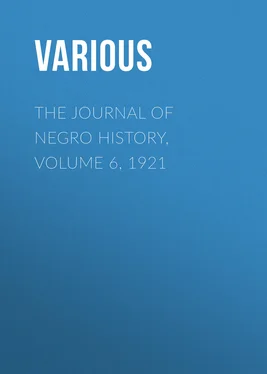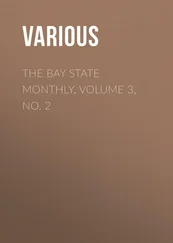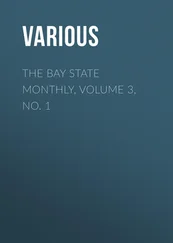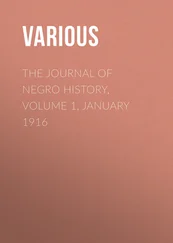Various - The Journal of Negro History, Volume 6, 1921
Здесь есть возможность читать онлайн «Various - The Journal of Negro History, Volume 6, 1921» — ознакомительный отрывок электронной книги совершенно бесплатно, а после прочтения отрывка купить полную версию. В некоторых случаях можно слушать аудио, скачать через торрент в формате fb2 и присутствует краткое содержание. Жанр: foreign_antique, periodic, История, foreign_edu, на английском языке. Описание произведения, (предисловие) а так же отзывы посетителей доступны на портале библиотеки ЛибКат.
- Название:The Journal of Negro History, Volume 6, 1921
- Автор:
- Жанр:
- Год:неизвестен
- ISBN:нет данных
- Рейтинг книги:4 / 5. Голосов: 1
-
Избранное:Добавить в избранное
- Отзывы:
-
Ваша оценка:
- 80
- 1
- 2
- 3
- 4
- 5
The Journal of Negro History, Volume 6, 1921: краткое содержание, описание и аннотация
Предлагаем к чтению аннотацию, описание, краткое содержание или предисловие (зависит от того, что написал сам автор книги «The Journal of Negro History, Volume 6, 1921»). Если вы не нашли необходимую информацию о книге — напишите в комментариях, мы постараемся отыскать её.
The Journal of Negro History, Volume 6, 1921 — читать онлайн ознакомительный отрывок
Ниже представлен текст книги, разбитый по страницам. Система сохранения места последней прочитанной страницы, позволяет с удобством читать онлайн бесплатно книгу «The Journal of Negro History, Volume 6, 1921», без необходимости каждый раз заново искать на чём Вы остановились. Поставьте закладку, и сможете в любой момент перейти на страницу, на которой закончили чтение.
Интервал:
Закладка:
What did the Negro become when he was freed? What was he when, according to section 2 of Article IV of the Constitution, he became by virtue of the Fourteenth Amendment entitled to all privileges and immunities of citizens in the several States? 25 25 Ward v. Maryland , 12 Wall., 418; Corfield v. Coryell , 4 Washington, D. C., 371; Paul v. Virginia , 8 Wall., 168; Slaughter-house cases , Ibid. , 36.
From what did the race become free? If Justice Bradley had been inconveniently segregated by common carriers, driven out of inns and hotels with the sanction of local law, and deprived by a mob of the opportunity to make a living, would he have considered himself a free citizen of this or any other country? "A colored citizen of Ohio or Indiana while in the jurisdiction of Tennessee," contended Justice Harlan, "is entitled to enjoy any privilege or immunity, fundamental in citizenship, which is given to citizens of the white race in the latter State. Citizenship in this country necessarily imports at least equality of civil rights among citizens of every race in the same State." In United States v. Cruikshank 26 26 92 U. S., 542.
it was held that rights of life and personal liberty are natural rights of man, and that "equality of the rights of citizens is a principle of republicanism."
Inconsistency of the Court
In the case of Hall v. DeCuir 27 27 95 U. S., 487.
the court reached an important decision when an Act of Louisiana passed in 1869 to give passengers without regard to race or color equality of right in the accommodations of railroad or street cars, steamboats or other water crafts, stage coaches, omnibusses or other vehicles, was declared unconstitutional so far as it related to commerce between States. 28 28 The Louisiana Act was: Section—. All persons engaged within this State in the business of common carriers of passengers, shall have the right to refuse to admit any person to their railroad cars, street cars, steamboats or other water-crafts, stage coaches, omnibusses, or other vehicles, or to expel any person therefrom after admission, when such persons shall, on demand, refuse or neglect to pay the customary fare, or when such person shall be of infamous character or shall be guilty, after admission to the conveyance of the carrier, of gross, vulgar, or disorderly conduct, or who shall commit any act tending to injure the business of the carrier, prescribed for the management of his business, after such rules and regulations shall have been made known: Provided , said rules and regulations make no discrimination on account of race or color, and shall have the right to refuse any person admission to such conveyance where there is not room or suitable accommodation; and, except in cases above enumerated, all persons engaged in the business of common carriers of passengers are forbidden to refuse admission to their conveyance, or to expel therefrom any person whomsoever. Section 4. For a violation of any provision of the first and second sections of this act, the party injured shall have right of action to recover any damage, exemplary as well as actual, which he may sustain, before any court of competent jurisdiction. Acts of 1869, page 77; Rev. Stat. 1870, page 93.
Here a person of color had been discriminated against by a Mississippi River navigation company which was called to answer before a United States court for violating this act.
Giving the opinion of the court, Chief Justice Waite said: "We think it may be safely said that State legislation which seeks to impose a direct burden upon inter-state commerce, or to interfere directly with its freedom does encroach upon the exclusive power of Congress. The statute now under consideration in our opinion occupies that position." "Inaction by Congress," the court held, "is equivalent to a declaration that interstate commerce shall remain free and untrammelled." This meant that the carrier was "at liberty to adopt such reasonable rules and regulations for the disposition of passengers upon his boat, while pursuing her voyage within Louisiana or without, as seemed to him best for the interest of all concerned. The statute under which this suit is brought, as construed by the State court, seeks to take away from him that power so long as he is within Louisiana, and while recognizing to the fullest extent the principle which sustains a statute unless its unconstitutionality is clearly established, we think this statute to the extent that it requires those engaged in the transportation of passengers among the several States to carry colored persons in Louisiana in the same cabin with whites is unconstitutional and void. If the public good requires such legislation it must come from Congress and not from the States."
Justice Waite here expressed his fear as to the delicate ground on which he was treading in saying: "The line which separates the powers of the States from this exclusive power of Congress is not always distinctly marked, and oftentimes it is not easy to determine on which side a particular case belongs. Judges not infrequently differ in their reasons for a decision in which they concur. Under such circumstances it would be a useless task to undertake to fix an arbitrary rule by which the line must in all cases be located. It is far better to leave a matter of such delicacy to be settled in each case upon a view of the particular rights involved." Thus the way was left clear to vary the principle of interpretation according to the color of the citizens whose rights might be involved.
In view of the subsequent decisions in separate car cases, moreover, the following portion of Justice Waite's opinion as to a clause in the law involved in the case of Hall v. DeCuir is unusually interesting. "It does not act," said he, "upon the business through the local instruments to be employed after coming within the State, from without or goes out from within. While it purports only to control the carrier when engaged within the State it must necessarily influence his conduct to some extent in the management of his business throughout his entire voyage. We confine our decision to the statute in its effect upon foreign and interstate commerce, expressing no opinion as to its validity in any other respect." 29 29 Mr. Justice Clifford concurred in the judgment but went into details to justify the segregation whereas the opinion of the court merely tried to see whether the details conflicted with the power of Congress to regulate commerce.
With the rapid expansion of commerce in the United States and the consequent necessity for regulation both by the State and the United States, no power of Congress was more frequently questioned than that to regulate commerce and no litigant concerned in such constitutional questions easily escaped the consequences of the varying interpretation given this clause by the United States Supreme Court. The court, of course, accepted as a general principle that there are three spheres for the regulation of commerce, namely: that which a State cannot invade, that which the State may invade, when Congress has not interfered, and that which is reserved to the State in conformity with its police power. But as late as 1886 the nationalistic school found some encouragement in the decision of the Wabash, St. Louis and Pacific Railway Company v. Illinois 30 30 118 W. S., 557.
given by Justice Miller. He said: "Notwithstanding what is there said, that is, in the decisions of Munn v. Illinois; C. B. and Q. R. R. Company v. Iowa , and Peik v. Chicago and N. W. R. R. Co. , 31 31 All of these are in 94 U. S.
this court held and asserted that it had never consciously held otherwise, that a statute of a State intended to regulate or to tax, or to impose any other restriction upon the transmission of persons or property or telegraphic messages, from one State to another, is not within the class of legislation which the States may enact in the absence of legislation by Congress; and that such statutes are void even as to the part of such transmission which may be within the State." Chief Justice Waite, and Justice Bradley and Justice Gray, however, dissented for various reasons.
Интервал:
Закладка:
Похожие книги на «The Journal of Negro History, Volume 6, 1921»
Представляем Вашему вниманию похожие книги на «The Journal of Negro History, Volume 6, 1921» списком для выбора. Мы отобрали схожую по названию и смыслу литературу в надежде предоставить читателям больше вариантов отыскать новые, интересные, ещё непрочитанные произведения.
Обсуждение, отзывы о книге «The Journal of Negro History, Volume 6, 1921» и просто собственные мнения читателей. Оставьте ваши комментарии, напишите, что Вы думаете о произведении, его смысле или главных героях. Укажите что конкретно понравилось, а что нет, и почему Вы так считаете.












